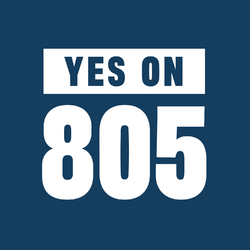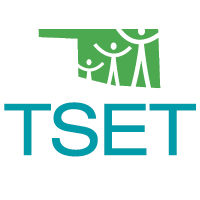What is a State Question?
State Questions give you, the voter, the power to decide major public policy issues.
The Muslim community is no stranger to the power of the State Question. In 2010, State Question 755, an anti-Shariah initiative, sought to demonize and marginalize the Muslim community by banning Shariah law from being used in courts in Oklahoma. It passed the popular vote by a margin of nearly 50%.
When passed by the voting public, State Questions immediately have the force of law.
Although State Question 755 was later ruled unconstitutional, our community has firsthand knowledge of the best methods to defeat problematic policy proposals at the local level – making sure they are not passed in the first place.
State Questions can address a wide range of public policy issues, including everything from business decisions to constitutional amendments. Voting on these issues is a method of “direct democracy” that allows the people to decide.
The most challenging thing about State Questions is the way they are phrased. The language used to describe State Questions often includes information that is very brief or heavy on jargon – legal language that can be challenging for the average voter to understand.
Any text that is italicized represents the language of the State Question as it will appear on your ballot.
On your ballot, each State Question (SQ) will be followed with the following question:
SHALL THE PROPOSAL BE APPROVED?
FOR THE PROPOSAL – YES
AGAINST THE PROPOSAL – NO
To vote, you will mark the box corresponding to your answer. For more questions about voting and a preview of the ballot layout, check out the Frequently Asked Questions and Sample Ballot sections at the end of this voter guide.
In this section, you’ll be able to get not only a preview of the actual language of each State Question but also information about what that language means, and what both sides of the issue have to say about the matter.
The Governor has issued executive proclamations for two State Questions to appear on the November 3 General Election ballot:
STATE QUESTION NO. 805, INITIATIVE PETITION NO. 421
 Ballot Title
Ballot Title
This measure seeks to add a new Article II-A to the Oklahoma Constitution. This new Article excepts and does not apply to persons who have ever been convicted of a violent felony. It would prohibit the use of a former felony conviction to increase the statutorily allowable base range of punishment for a person subsequently convicted of a felony. Individuals who are currently incarcerated for felony sentences that were enhanced based on one or more former felony convictions, and whose sentences are greater than the maximum sentence that may currently be imposed for such felonies, may seek sentence modification in court. The new Article sets forth a detailed process for such sentence modification, including but not limited to requirements for a hearing, appointment of counsel for indigent petitioners, and notification of victims, and requires that the court impose a modified sentence no greater than the current maximum sentence which may be imposed on a person convicted of the same felony with no former felony convictions, and which results in no greater time served in prison than under the original sentence. It establishes an appeal procedure, provides an effective date, and contains a severability clause.
SHALL THE PROPOSAL BE APPROVED?
FOR THE PROPOSAL – YES
AGAINST THE PROPOSAL – NO
State Question 805 is a constitutional amendment, meaning, if passed, any future changes would require another vote of the people. And the change would be retroactive, so those currently incarcerated with sentence enhancements could request modifications.
What it means:
• Would prohibit a person’s former non-violent felony convictions from being used to enhance the person’s sentence.
• State question 805 applies only to individuals convicted of non-violent felonies.
Supporters of this State Question Argue:
- Reduces expenses between 145 & 186 million dollars
- Taxpayer savings = 27 million dollars
- In 2019, there was 2693 individuals this would have applied to.
- Drop incarceration rate
- Provide for sentence modifications for eligible individuals serving or set to serve sentences that were enhanced based on past felony convictions
- Part of criminal Justice reform
Opponents to this State Question Argue:
- would allow repeat offenders to “spend less time in prison, allowing them to return to the community to commit even more crime,”
- will create “career criminals”
- Regardless of number of felony conviction, the sentence can never be lengthened or enhanced because of these past actions.
- Repeat offenders who commit crimes will see their punishment reduced
CAIR Oklahoma Supports State Question 805 and Recommends a YES vote.
STATE QUESTION NO. 814, LEGISLATIVE REFERENDUM NO. 375
 Ballot Title
Ballot Title
This measure seeks to amend Article 10, Section 40 of the Oklahoma Constitution (Section 40), which directs proceeds from the State’s settlements with or judgments against tobacco companies. Currently, Section 40 directs 75% of proceeds to the Tobacco Settlement Endowment Trust Fund (TSET Fund), where earnings may only be used for tobacco prevention programs, cancer research, and other such programs to maintain or improve the health of Oklahomans. Meanwhile, the remaining 25% of proceeds are directed to a separate fund for the Legislature (Legislative Fund). The Legislature can also direct some of that 25% to the Attorney General.
This measure amends Section 40 to reduce the percentage of proceeds that go into the TSET Fund from 75% to 25%. As a result, the remaining 75% will go to the Legislative Fund and the Legislature may continue to direct a portion to the Attorney General. The measure would also restrict the use of the Legislative Fund. Section 40 currently states only that the Legislative Fund is subject to legislative appropriation. If this measure passes, money from the Legislative Fund must be used to get federal matching funds for Oklahoma’s Medicaid Program.
SHALL THE PROPOSAL BE APPROVED?
FOR THE PROPOSAL – YES
AGAINST THE PROPOSAL – NO
What is the Tobacco Settlement Endowment Trust (TSET)?
TSET is a public trust created by the State of Oklahoma to manage any money from settlements or lawsuits against any tobacco company.
History:
In 1998, Oklahoma was one of 46 states to settle a massive lawsuit with big tobacco companies. Under the settlement, the tobacco companies agreed to send at least $206 billion to the states over the first 25 years of the agreement.
In 2000, Oklahoma voters approved State Question 692, a constitutional amendment that created the Oklahoma Tobacco Settlement Trust and provided that most of the settlement money would go there.
In August of 2020, Oklahoma voters passed SQ 802 to expand Medicaid. In order to fund this expansion the legislature poses SQ 814, which seeks to reallocate 75% of the money currently going to TSET to the state legislature, in order to appropriate funds to secure federal matching funds for the state’s Medicaid program.
However, this measure (SQ 814) does not require the TSET funds be specifically applied to pay for Medicaid expansion, raising concerns that TSET dollars could instead supplant existing state Medicaid funding.
TSET’s mission statement states:
TSET has focused funding on reducing Oklahoma’s leading causes of preventable death – tobacco use and obesity – in order to reduce cancer and cardiovascular disease. As a state grantmaking trust, TSET funds prevention, research and emerging opportunities to improve the health of every Oklahoman.
Those in support of State Question 814 Argue:
- Can help pay for Medicaid expansion without tax increases.
“The legislature’s primary responsibility every year is to produce a balanced budget, and it should have access to nearly all state revenues to do so in a way that aligns priorities with those of Oklahoma’s citizens” – Oklahoma State Senator Mark Lepak
Those Opposed to State Question 814 Argue:
- There are multiple ways to fund Medicaid without raising taxes or raiding the fund of TSET
- TSET is Oklahoma’s primary source of tobacco control and prevention funding
“It is short-sighted to consider such sweeping changes to a proven program when public health has never been more important. The Legislature must leave the endowment to do its job and help ensure a strong, healthy Oklahoma.”- American Cancer Society Action Network government relations director Matt Glanville.
